Natural cosmetics for children: properties and types
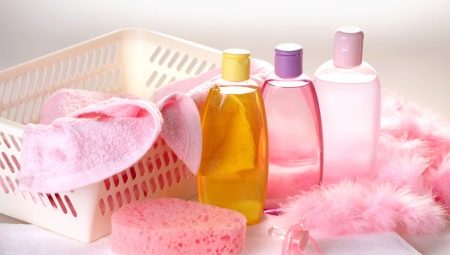
The birth of a child is not only a crucial step, but also an extra reason to think about the quality of the used children's cosmetics. Modern cosmetic products contain many inorganic harmful components, therefore, before buying hygiene products, it is simply necessary to study the properties and types of products for children. After all, a smart approach will help preserve the health of babies and the nerves of parents.
Peculiarities
Natural cosmetics still implies the presence of some chemical components, since it is they that extend its service life. However, it is worth paying attention to its composition.
Organic products must be free of parabens and sulfates, as it is designed for use on sensitive and allergy-prone skin of children. With the proper quality, safe cosmetics for children will help to avoid skin diseases.
Due to the high permeability of children's epidermis, harmful components of care products easily penetrate the body and can even provoke diseases of internal organs.

Often, manufacturers, indicating on the label that cosmetics belong to the category of children, are silent about the high concentration of chemistry unknown to us. Therefore, cheap products can cause dermatitis and suffocation due to the large amount of perfumery fragrances.
It is believed that all petroleum derivatives do not benefit baby skin. The exception is Vaseline oil. It is completely synthetic, but with proper cleaning it has a very beneficial effect on the dermis. Therefore, it is given out even in maternity hospitals. However, too frequent use of such a component can lead to clogged pores.
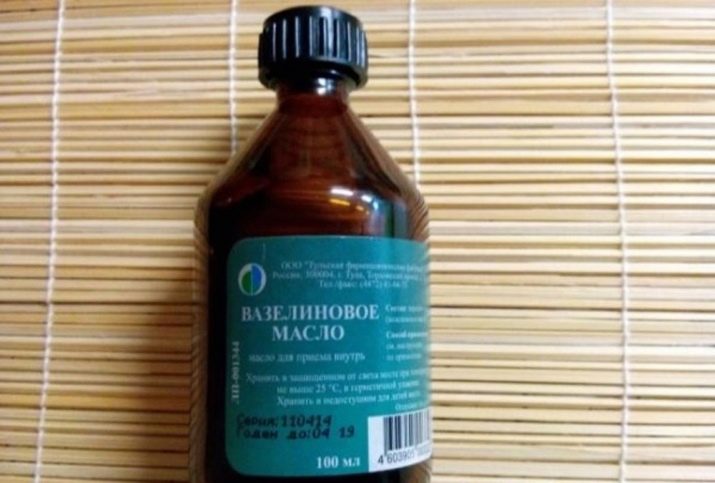
The main requirement for children's cosmetics is their hypoallergenic.
Absolutely all children's cosmetics should be based on purified or distilled water. And also the addition in the form of herbal extracts and decoctions is encouraged.
When buying baby products, you should pay attention to the peculiarities of the epidermis, whether it is skin prone to irritation or a normal type. Manufacturers should definitely focus on such nuances.
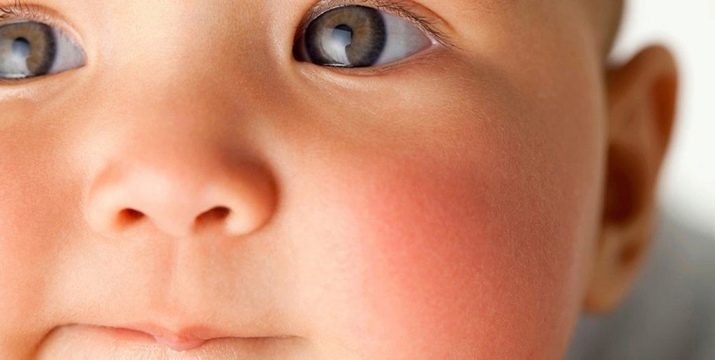
What shouldn't be in the lineup?
Consider substances that are not allowed in children's products.
- Propylene / Butylene Glycol. This component is present in almost all bath foams, shampoos, baby wipes. It is noteworthy that the presence of an element is also present in antifreeze. Its danger is manifested in the creation of a waterproof film effect on the skin, which interferes with normal water exchange and provokes the onset of dermatitis of varying severity.
- Cocamides DEA, MEA, TEA. Elements are allowed in the US but banned in Europe. They are added to bath foams and shampoos. Such components can disrupt the work of the hormonal system, dry out the dermis, they are quite allergenic.
- SLS. Perhaps the most popular and popular supplement. Sulfates are used to enhance the foaming properties of cosmetics and are permanently present in liquid soaps, shampoos, foams and gels. The dangerous additive accumulates in tissues and is not excreted from the body. This can lead to the occurrence of cancer.
- Triclozan. An antiseptic element that can have a negative effect on hormonal levels.
- PEG. Compositional element obtained by processing petroleum products. Violates the protective functions of the skin.
- Parabens. These are preservatives. Research shows they can disrupt hormones.
- Mineral oils. They are regulars of children's cosmetic products. Oils are obtained by refining petroleum. The negative effect on the epidermis is due to their high density and the creation of an airtight film. This effect is fraught with acne and irritation.
- Isopropyl alcohol. Industrial alcohols are classified as moderately hazardous elements. They replace ethanol in the production of cosmetic products. The aggressive environment dries out the skin, and its natural functions are disrupted.
Natural cosmetics for children are made without the use of these chemicals. Therefore, it is important to pay attention to the designations "Bio" and "Organic" on the label of goods for children.
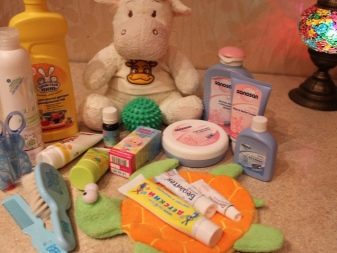
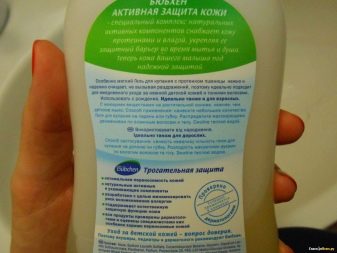
Varieties of cosmetics
Children's cosmetics are now produced in a very large assortment. Products are subdivided into care and decorative.
The first includes the products necessary for hygiene.
- Shampoos are made from natural ingredients designed to gently cleanse the scalp. They do not cause watery eyes, make it easier to comb fine hair.
- Creams, oils, milk and lotions designed to delicately care for the skin of children, are made from natural extracts, herbal decoctions with the addition of vitamins. They are divided into subspecies: caring, nutritious, under a diaper, from diaper rash and from irritations.
- Shower gels, soaps, bath foams are used to wash the body and may have moisturizing, soothing, toning and anti-inflammatory properties. The composition often contains small doses of synthetic components. The products should also not irritate the mucous membranes.
- Protective equipment. These are frost protection creams, lotions, oils and creams for sun protection and after sun protection. Such products are designed to intensively restore and protect the skin from natural factors.
- Talc and powder serve to prevent the appearance of diaper rash and irritation of delicate baby skin. Cosmetics are used after washing to protect against excess moisture.
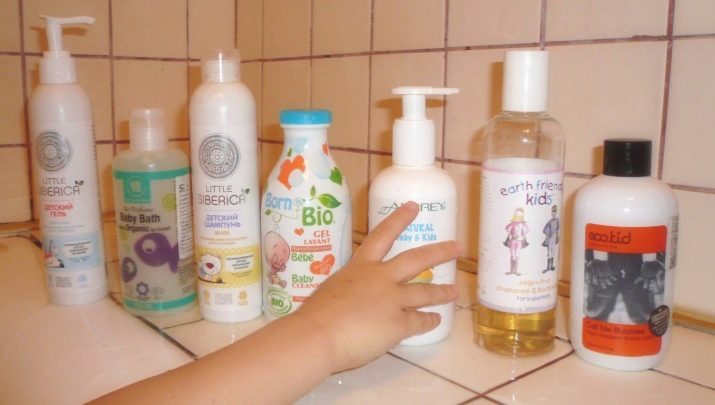
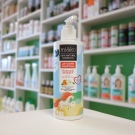
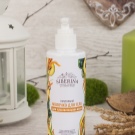
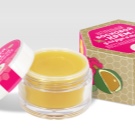
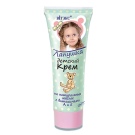
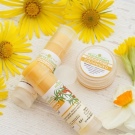
Decorative cosmetics include lipsticks, eye shadows, powders, water-based varnishes, blush and perfumes. All products are easily washed off with water, washed from clothes with ordinary powder and are hypoallergenic. Such cosmetics are allowed for use from 3 years old.
The unifying properties of caring and decorative cosmetics are the absence of hormonal substances, preservatives, aggressive chemical components, dyes, and fragrances.
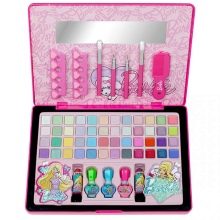
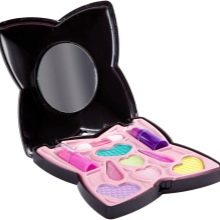
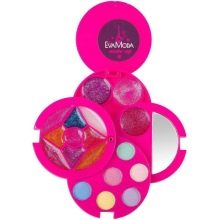
Popular brands
Many companies produce cosmetics for children of proper quality.
- Weleda occupies a leading position in the market of children's cosmetic products. The manufacturing company owns its own garden of medicinal plants, which are scrupulously looked after by specialists. GMP manufacturing standards ensure the effectiveness and safety of baby cosmetics. The manufacturer has completely removed oil products, silicones, fragrances and GMOs from the products.
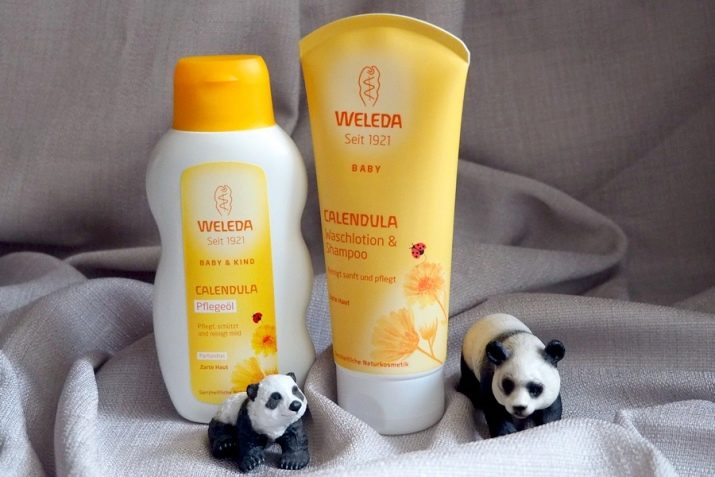
- Mommy care - natural cosmetics from Israel, with a special focus on the production of products for newborns. The firm provides multi-level certification of goods and a thorough inspection of raw materials. The products are free of parabens, SLS, phthalates and propylene glycol.
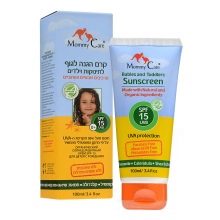
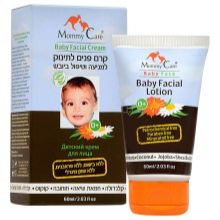
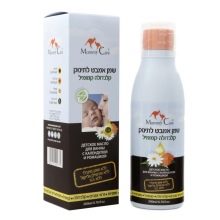
- Company Lavera specializes exclusively in organic compounds. Raw materials are thoroughly tested and standardized. The cosmetics of this brand are completely hypoallergenic and organic.
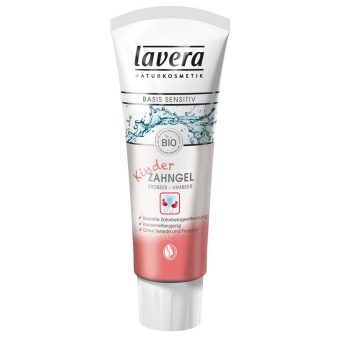
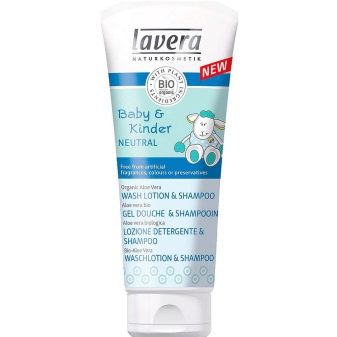
- Green mama belongs to a Russian manufacturer. It is completely safe and does not contain any chemical components. In the production of cosmetics, almost 99% of natural raw materials are used, which have passed preliminary quality control.
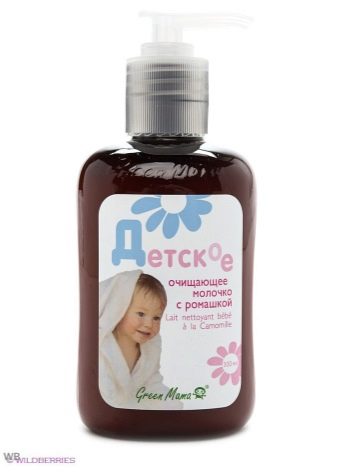
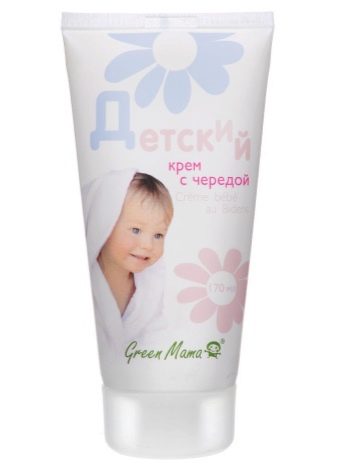
- Natura Siberica famous for its naturalness, efficiency and safety. Contains natural plant extracts. Cosmetics are regularly subjected to all kinds of checks and certifications.
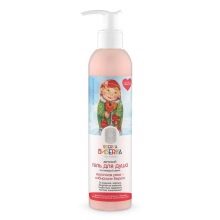
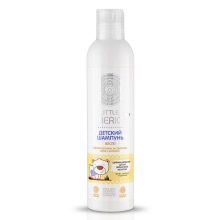
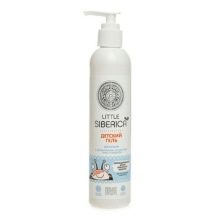
Selection rules
Children's cosmetics are presented in all pharmacy chains and stores, but nevertheless, when choosing, you should adhere to some rules.
Any products for children must be properly stored. Therefore, it is better to avoid purchasing funds from hands and in small shops. Violation of the temperature storage regime leads to rapid deterioration of natural cosmetics.
In online stores, you should pay attention to the availability of quality certificates for goods and the possibility of exchange. Fast shipping is preferable. Such a simple move will protect against the purchase of damaged products and storage disruption in post offices.

The best purchase option is network pharmacies. They carefully monitor the sanitary standards and the storage temperature of the funds. The products, in turn, have all the necessary documents and are regularly checked.
Due to high competition, special cosmetic stores sell only fresh and certified goods, and also monitor the quality of product packaging.
The date of manufacture and shelf life of cosmetics are of great importance. It is necessary to monitor the presence of all the necessary information on the packaging. In addition, each type of product, depending on the purpose and container material, has its own permissible period of use after opening the package. It is worth choosing the freshest cosmetics, since natural raw materials quickly deteriorate.
In order to avoid counterfeiting at the first request, sellers are obliged to provide the client with all the necessary certificates.
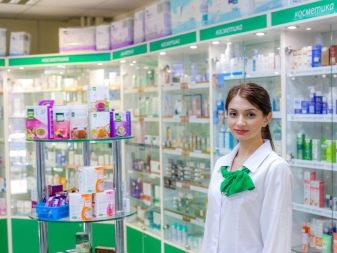
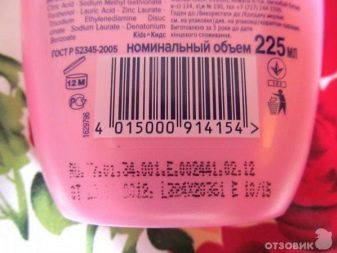
When opening the package, you should first examine the product. The presence of a non-uniform consistency, a rancid odor or an unnatural color indicates damage to cosmetics. It is forbidden to use such a product.
If a perfume is present, its intensity should be considered. Too much essential oils can also negatively affect the health of children.Experts recommend using such cosmetics from the age of 3 years or with great care.
Before use, you need to pre-test the purchase. Apply a small amount to the back of the wrist and wait a couple of hours. In the absence of discomfort and negative reactions, you can proceed to the direct use of cosmetics.
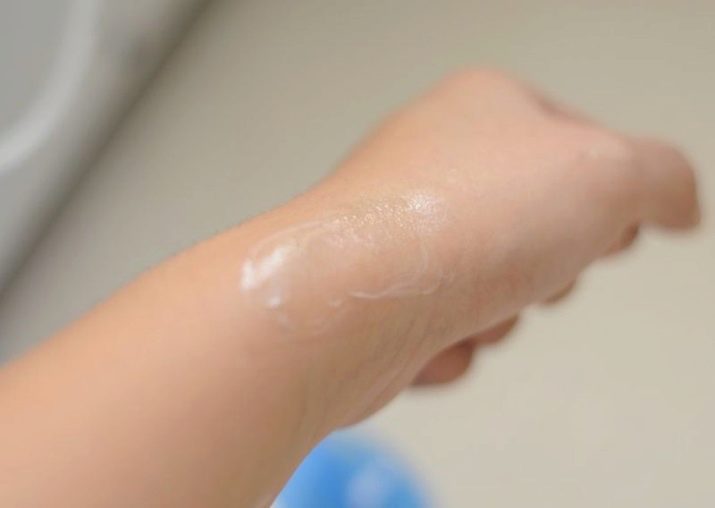
The choice of the composition of natural caring cosmetics must also meet certain conditions:
- it is better to choose herbs of Russian origin from ecologically clean areas;
- extracts from plants should be colorless, as evidenced by the shade of the product - this minimizes the risk of an allergic reaction;
- predominantly the absence of any fragrances or the presence of a weak plume.
The following herbs should be preferred in the composition:
- the series has anti-inflammatory, antiallergic, antiseptic and soothing qualities, has a beneficial effect on the epidermis in the treatment of skin diseases, dermatitis and irritations;
- yarrow is famous for its tonic, antispasmodic and anti-allergic properties, which has a positive effect on skin inflammations;
- chamomile is an excellent natural antiseptic, increases the ability of the dermis to regenerate;
- calendula quickly relieves redness, irritation and inflammation of the skin, accelerates wound healing and has moisturizing properties;
- mint and motherwort are commonly found in nighttime cosmetics, are antiseptics and can relieve mild pain.
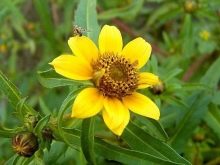
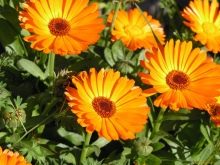

It is still better to avoid the use of decorative cosmetics, since the composition includes dyes and additives. It is impossible to purchase products in a pharmacy, which increases the risk of unfair storage.
See below for an overview of natural cosmetics for children.








